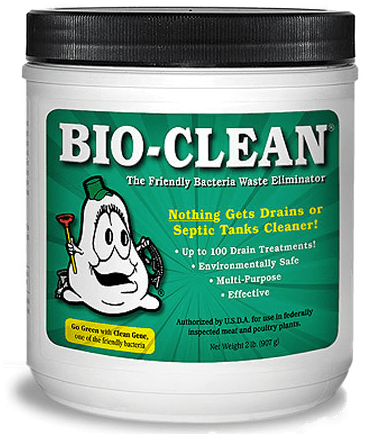Call Us At (847) 624-3872
St. Charles, Illinois: Kane and Dupage county residents, Fox Valley Plumbing & Backflow Plumbing technicians are plumbing specialists who offer complete plumbing services for both residential and commercial clients.
Toilets, showers, sinks, water heaters, sump & sewage pumps, drains, or sewer pipes–we know how important a quick response can be.
All Services include a full one-year workmanship warranty. Call For Details!
– If you aren’t happy, neither are we. We strive to make YOU happy. At Fox Valley Plumbing, we make sure you understand everything we are providing, no fancy language with hidden costs.
– At Fox Valley Plumbing & Backflow Plumbing Services, your plumbing problem becomes our problem the moment you contact us.
– We take pride in reaching your location promptly, diagnosing your plumbing issue quickly, and taking action.
– Fox Valley Plumbing & Backflow emergency plumbing service professionals bring with them all the specialized equipment typically needed to inspect, detect and repair burst pipes, major clogs, backups, and other plumbing catastrophes.
– We’ll explain the problem and solution and fix it right the first time. We’ll even help you prevent future plumbing problems by inspecting your entire system as part of our service to you.
There is no time like the present to gain a better understanding of plumbing. Perhaps, you had thought about it before, but were unsure about your abilities. Read the great advice in this article from Elgin, Il plumbing, and you will be happy that you finally took the time to do so if you ever have any plumbing issues.
Obnoxiously loud pipes that like to squeal and hammer are easy situations to correct. You must anchor any type of exposed pipe. You may need to hire a professional to help with any projects involving pipes that are hidden in the floors, ceiling, or walls.
To prevent frozen pipes, always keep the living spaces in your house above freezing, even if you aren’t home. Any exposed pipes need to be insulated against outdoor temperatures. Pipes can freeze when the ambient temperature in the area of the pipes dips below freezing. Even in the best-case scenario, it will take hours for thawing to happen before you have running water again. However, your pipes can explode, as well – making a huge plumbing bill.
If your water pipe has frozen, start water running in the faucet closest to the frozen pipe. This will give excess water somewhere to drain as the ice in the pipe thaws. This helps decrease any pressure in order to prevent burst pipes. A burst pipe can create damage that is expensive to repair.
Wait until a job is done before you pay for it. A plumber might ask you for part of the money before starting the job but you should never pay more than half. It is good to know that the plumber did everything as promised before he gets his money.
In conclusion, it’s really important that you know the necessary things about your plumbing system. Your relatives and close acquaintances are sure to find you a handy resource in their lives, and you personally can save some of your hard-earned dollars. Hopefully the information from Elgin, Il plumbing advice has offered you interesting information that you can use.
Use These Tips From Fox Valley Plumbers in Elgin, Illinois – Lets face it plumbing skills are a great addition to anyone’s skill set. It reflects a level of care in the maintenance of your home and the ability to address concerns in your own way. That is a very admirable quality. Like any other skill, you can always build and improve. These tips will help you do that.
Odor removers such as bleach toilets are not good for your plumbing system. These products will reduce the smell, but they will also cause problems with the rubber gaskets. Over time, the damage will accumulate and could eventually stop the toilet from functioning at all.

Inspect around the toilets for softness in the floors to see if any damage has occurred. Straddle the toilet, so you can rock from one leg to another to determine whether there’s weakness in the floor. Picking up on any problems now will definitely work to save you money later. It’s the difference in a little maintenance and total floor replacement.
A strainer should be placed over all the drains in order to gather particles that would just get in the drain and potentially cause stoppage. Whenever large particles become trapped in the strainer, remove them. Clean bathtub drain screens as often as needed.
A great maintenance routine for bathtub drains is to pour baking soda and vinegar into the drain opening once a month. Cover the drain with an old rag, because there will be a chemical reaction taking place inside the pipes. Flush it with boiling water after a few minutes. This procedure should be able to clear pipes of hair and soap scum.
Ensure your overflow holes aren’t clogged up. Overflow holes are used in case the sink starts to overfill, which may not seem like a big problem–until it is. Clear overflow holes when doing periodic checks for problems and plumbing issues that should be addressed.
Always use cold water when your garbage disposal is running. Cold water keeps blades sharp and allows for smoother disposal. When you use hot water, any grease that is in the garbage will melt and be more prone to stopping up your drain.
Now you have the necessary tools, the knowledge and skill set needed to apply to your own plumbing system. This is wonderful! These tips and other online resources are available to help you fix almost any plumbing problem. When you never stop learning new skills, you never stop improving. You may even find a plumbing job or idea you like.
Service Area
Hoffman Estates, Schaumburg, Carol Stream, Palatine, Elgin, Des Plaines, Arlington Heights, Crystal Lake, Bensenville, Algonquin, Batavia, Glendale Heights, Elk Grove Village, Bartlett, Bloomingdale, West Chicago, Wheaton, Saint Charles, Glen Ellyn, Barrington, Wood Dale, Naperville, Villa Park, Elburn, Wasco, Lake Zurich, South Elgin, Warrenville, Lafox, Hanover Park, Melrose Park, Buffalo Grove, Downers Grove, Franklin Park, Mount Prospect, Carpentersville, Fox River Grove, Cary, Rolling Meadows, Itasca, Geneva, Streamwood, Wayne, Mooseheart, Winfield, Dundee, Gilberts, Elmhurst, Roselle, Medinah, Lombard, Huntley, Chicago, Addison, Prospect Heights
OUR CREDENTIALS…

Contact Us
This site uses cookies. By continuing to browse the site, you are agreeing to our use of cookies.
Accept settingsHide notification onlySettingsWe may request cookies to be set on your device. We use cookies to let us know when you visit our websites, how you interact with us, to enrich your user experience, and to customize your relationship with our website.
Click on the different category headings to find out more. You can also change some of your preferences. Note that blocking some types of cookies may impact your experience on our websites and the services we are able to offer.
These cookies are strictly necessary to provide you with services available through our website and to use some of its features.
Because these cookies are strictly necessary to deliver the website, refuseing them will have impact how our site functions. You always can block or delete cookies by changing your browser settings and force blocking all cookies on this website. But this will always prompt you to accept/refuse cookies when revisiting our site.
We fully respect if you want to refuse cookies but to avoid asking you again and again kindly allow us to store a cookie for that. You are free to opt out any time or opt in for other cookies to get a better experience. If you refuse cookies we will remove all set cookies in our domain.
We provide you with a list of stored cookies on your computer in our domain so you can check what we stored. Due to security reasons we are not able to show or modify cookies from other domains. You can check these in your browser security settings.
These cookies collect information that is used either in aggregate form to help us understand how our website is being used or how effective our marketing campaigns are, or to help us customize our website and application for you in order to enhance your experience.
If you do not want that we track your visit to our site you can disable tracking in your browser here:
We also use different external services like Google Webfonts, Google Maps, and external Video providers. Since these providers may collect personal data like your IP address we allow you to block them here. Please be aware that this might heavily reduce the functionality and appearance of our site. Changes will take effect once you reload the page.
Google Webfont Settings:
Google Map Settings:
Google reCaptcha Settings:
Vimeo and Youtube video embeds:
The following cookies are also needed - You can choose if you want to allow them:
You can read about our cookies and privacy settings in detail on our Privacy Policy Page.
Privacy Policy